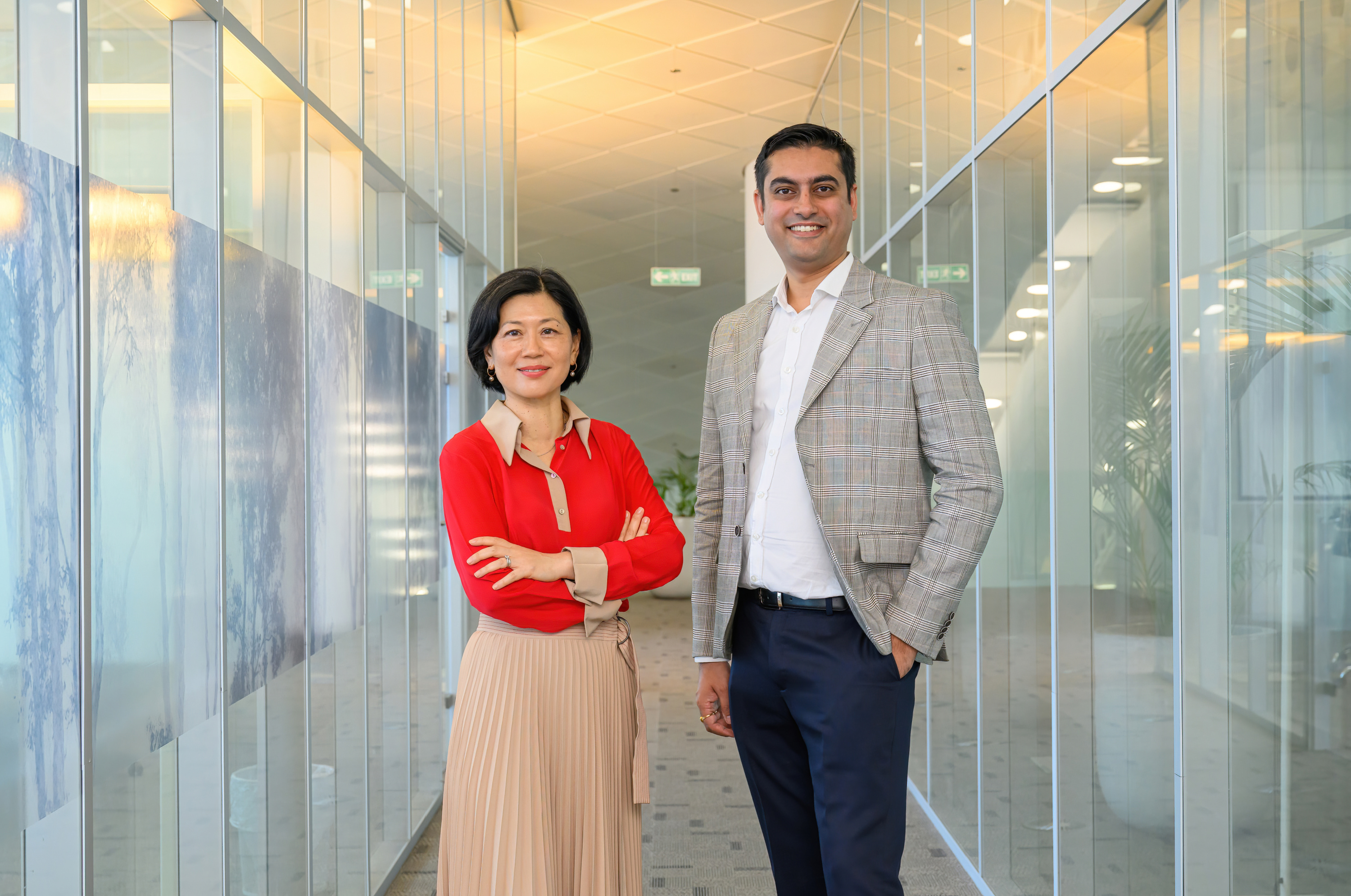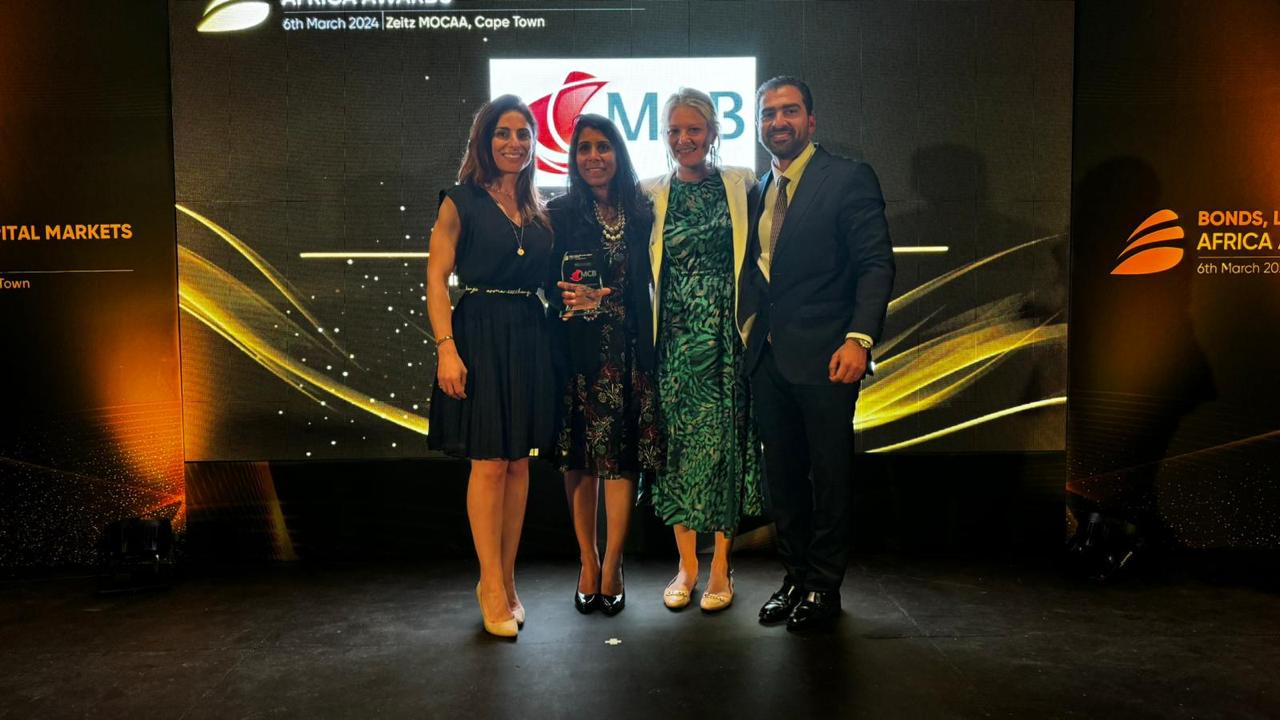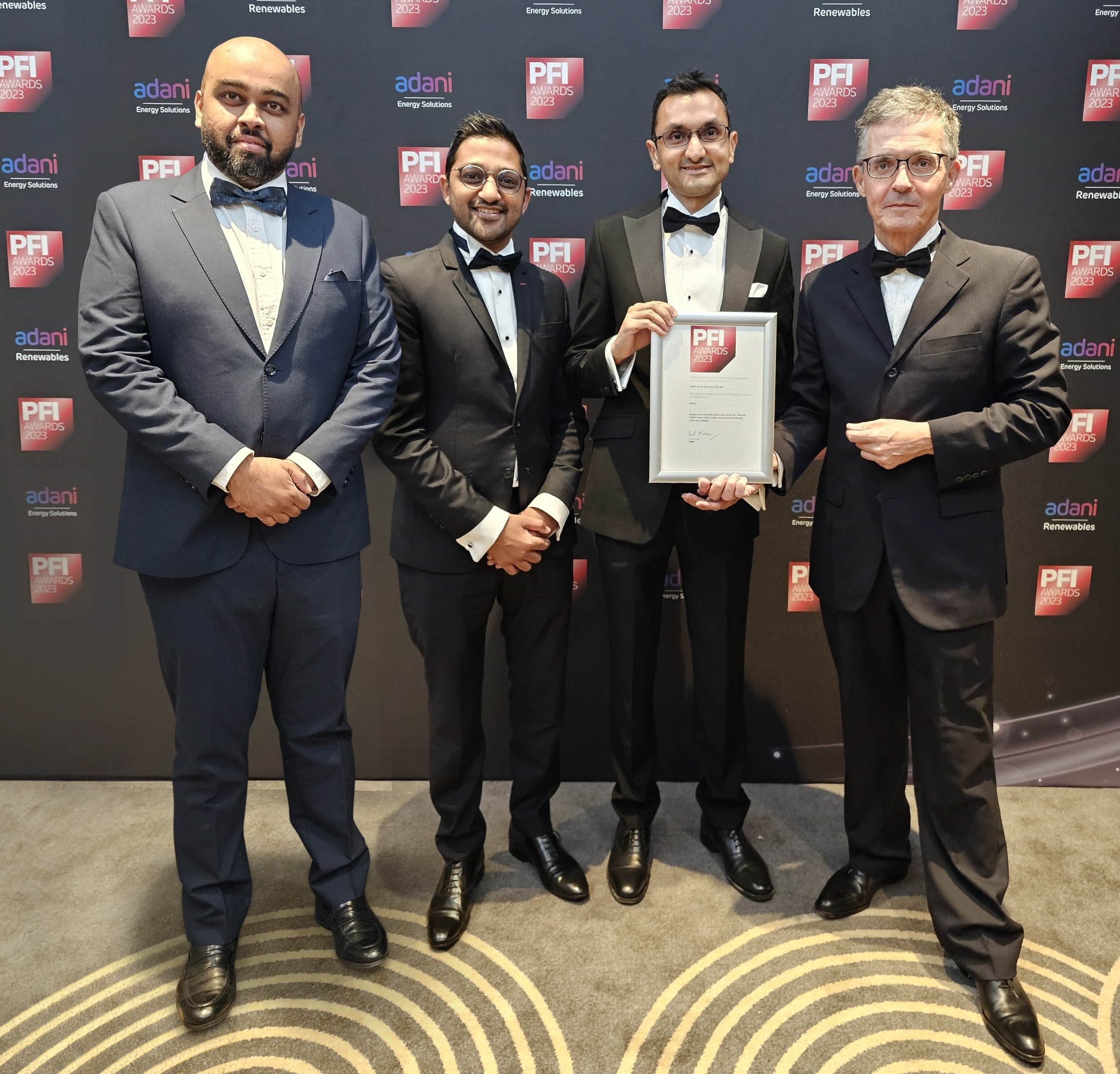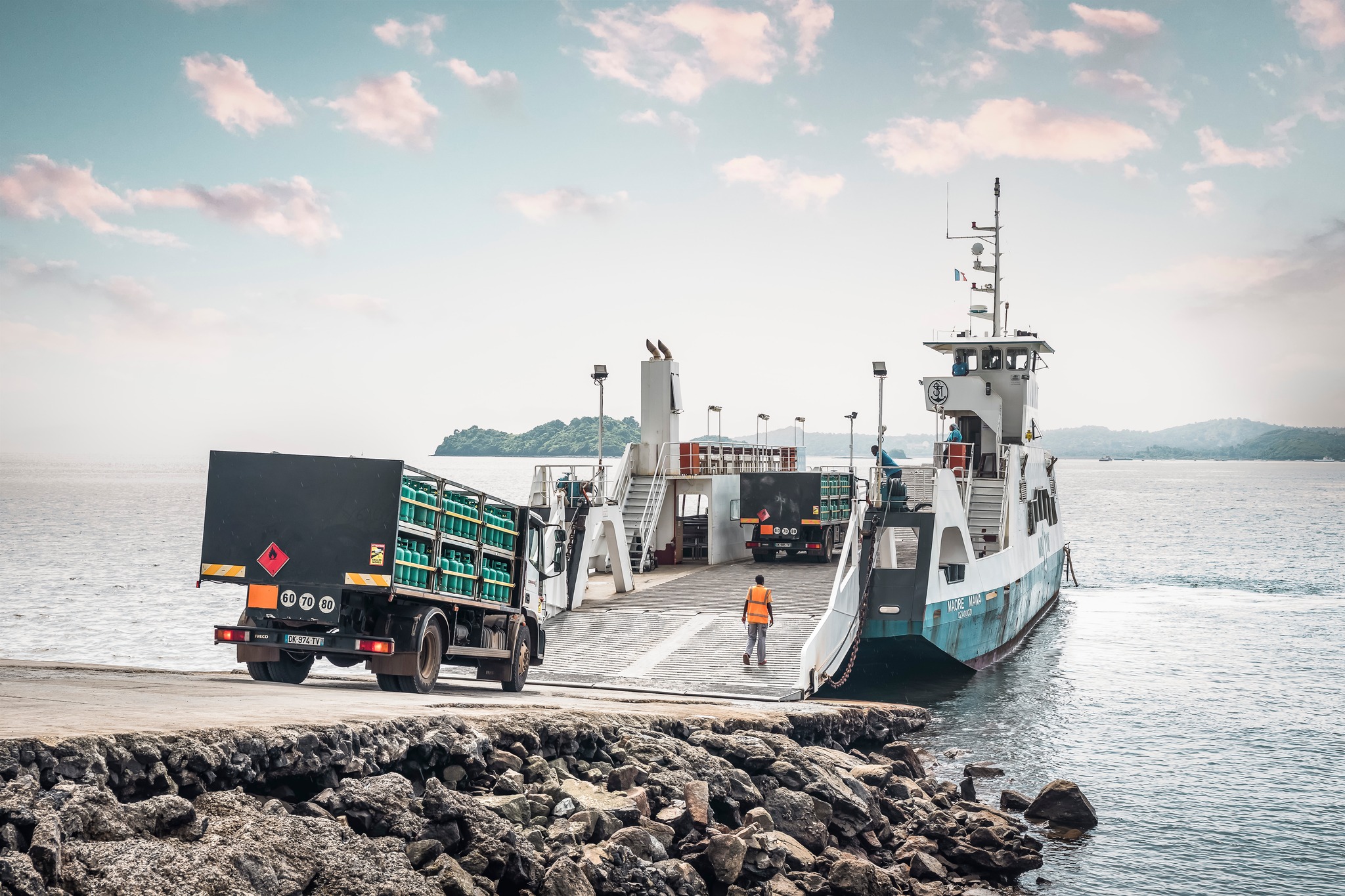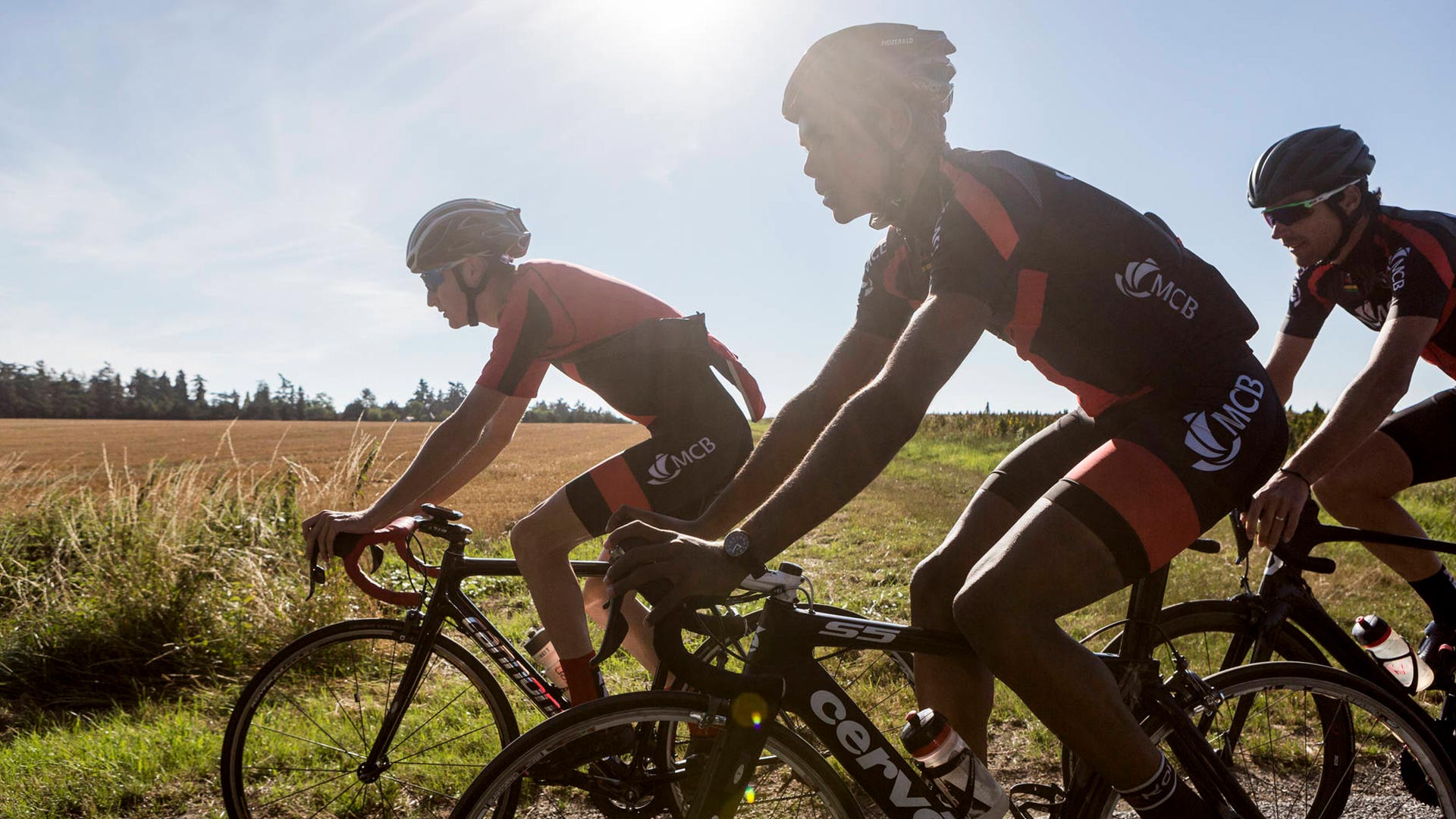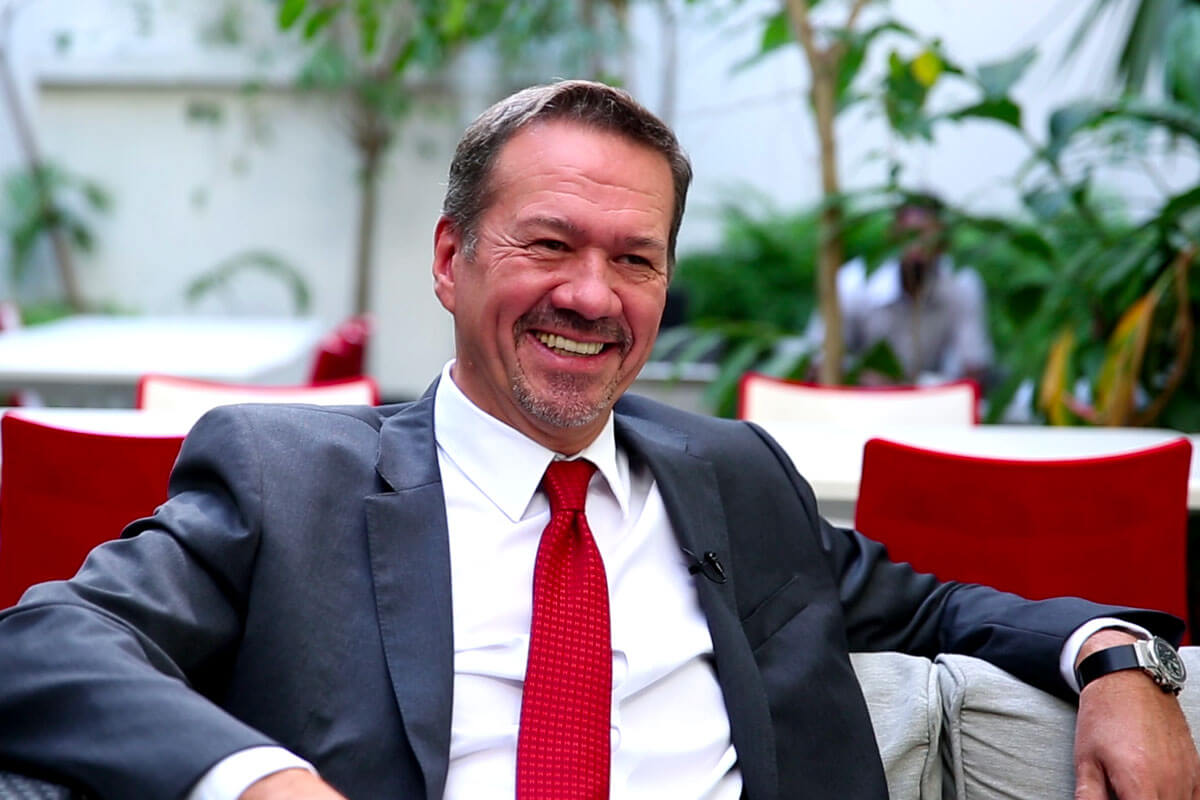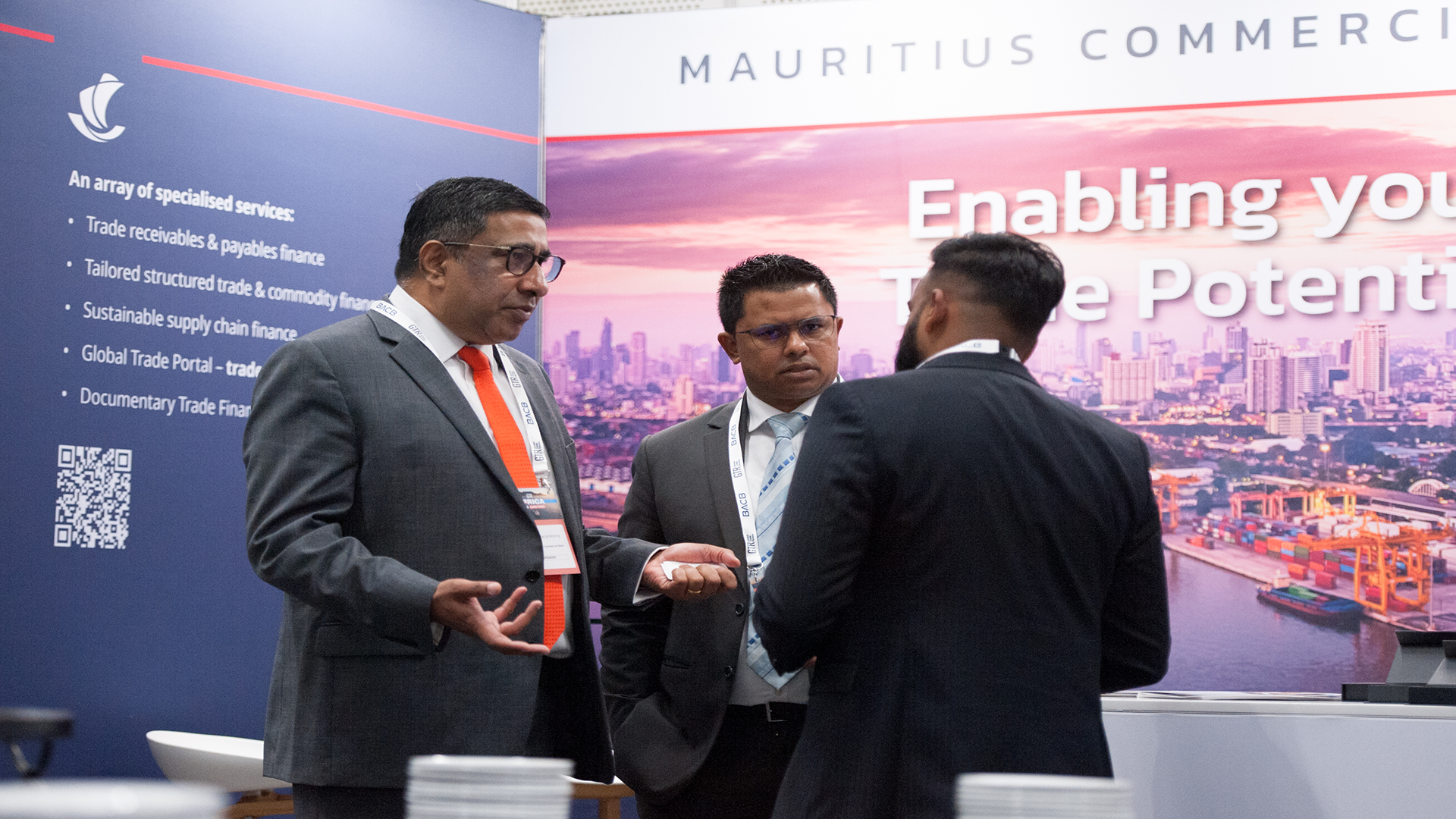- Home
- Investor Centre
- Sustainability
- Talent
- News
- TH!NK
- Corporate Governance
- Company Profile
- Board of Directors
- Community
Contact Info
Success Beyond Numbers: Where are we now?

A conversation with Pierre Guy Noël (PGN), Alain Law Min (ALM) and Raoul Gufflet (RG).
MCB Group launched its corporate sustainability programme, ‘Success Beyond Numbers’ last November. A few months down the line, how would you assess its overall impact?
PGN: I think it is highly positive that we have managed to bring our employees together around this theme and that they have actually taken control of the various initiatives launched as part of the programme. The harder part now will be to rally a bigger audience around our sustainability initiative, be they our clients or third parties with whom we interact on a permanent basis. The ‘Lokal is Beautiful’ report and conference were successful because they appealed to a wide public. We now want to launch similarly impactful initiatives.
And for that to happen, we are working on a roadmap to guide our actions. We seek to integrate sustainable development to our banking activities as a way to involve our customers. These are obviously long-term goals — to make sustainability not only part and parcel of our business but to make sure it is embedded therein. But more importantly, ‘Success Beyond Numbers’ is the reiteration of our core and historical values. This implies that we have a responsibility towards people, businesses and their prosperity.
ALM: The outcome was very positive; it exceeded my own expectations. And as Pierre Guy said — internally, there was a genuine alignment between employees and our corporate sustainability programme, together with a keen interest from external stakeholders. And that is great news since it is an important project for the Group. As you know, sustainable development, digitalisation and international expansion are the three strategic thrusts for MCB.
The sustainability programme will also help us to be more focused in our approach, which in turn will have a bigger impact when communicating on our strategy. This will also give us a structure that will help us to execute our planned actions for the future. The continued success of this programme will depend on our ability to rally our stakeholders around important subjects, like with ‘Lokal is Beautiful’. This will require that we make proactive choices on initiatives rather than reacting to what our customers request from us. This not only means more visibility but also that we stand ready to be challenged. MCB Group has historically favoured a discreet and neutral approach and this will have to change because we will be called upon to express our viewpoints on several issues, including sensitive ones.
What are MCB Group’s short- and long-term priorities in terms of sustainable development?
PGN: MCB Group remains primarily a banking group and so it follows that our initiatives need to revolve around financing. This means that we will find ourselves in a situation where we would either need to refuse to grant financing — which is tricky — or perhaps provide more attractive terms.
RG: I concur; the outcome was very positive and I believe we have surprised our employees as well as the public in general when we came forward with this initiative. I do not think they expected MCB Group to voluntarily open a discussion about the socio-environmental consequences of its activities. By doing so, we have expressed our wish to make sustainability part of our DNA. I would also like to point out that the three pillars supporting our initiative — local economy, preservation of the environment and promotion of culture and of individual and collective well-being — show that the challenges faced by Mauritius are those faced by the rest of the world to encourage best practices while offering a higher interest rate as a deterrent for some activities. I also think we need to determine a few priorities locally, like the sorting of waste for recycling, and this holds true both in-house or generally in Mauritius.
ALM: I agree. The preservation of our environment is a major theme going forward and because we are an island, the impacts, whether negative or positive, are felt more acutely and rapidly. I agree we should focus more on waste recycling and the circular economy and I think that the Group needs to take the lead on issues such as the overuse of pesticides or climate change that leads to beach erosion.
RG: Definitely; the protection of the environment and climate are not only moral emergencies for Mauritius but they are also vital to the tourism industry. And yet, such requirements for an attractive tourism industry are often neglected, whether by the public or the authorities. There are obviously other priorities — like the development of a prosperous local economy that promotes best practices because the younger generations do not believe in growth at any cost and they are favourable to responsible and ethical growth, the ability to trace the origin of raw materials and the importance of shorter supply chains… I also think it is high time that we take a critical look at the educational system in Mauritius, to make it more integrated and inclusive of the person, culture, historical heritage. I would also like to add that gender equality is a subject which is very close to my heart; It also happens to be a sensitive one, whether in Mauritius or in the Group. Although we have improved on the subject internally, we will further promote the involvement of more women within our organisation, which has historically been characterised by a hierarchical and seniority driven structure.
“The continued success of this programme will depend on our ability to rally our stakeholders around important subjects, like with Lokal is Beautiful"
Alain Law Min
Financial institutions across the world seem to become more and more aware that with financial power comes responsibility — in the sense of what is financed or not. What is your take on this evolution — be it of banks or the market?
PGN: Banks that decide not to finance some sectors are still the exception rather than the rule but I think that over time, this will change. As far as we are concerned, we would rather lead the way than be followers, and locally we have already moved in this direction. We should however keep the same mind-set at the international level regardless of our relative size with respect to foreign peers. That being said, it is true that we ought to critically assess our portfolio of financing activities in terms of sustainable development, particularly within our energy and commodities activities, although it should be highlighted that the latter currently contribute to the socio-economic development of the African continent. And we will have to be in a position to take a stance in the light of this assessment while at the same time launch positive initiatives on issues such as climate and carbon emissions.
ALM: It is true that there is a real trend that is not only gaining traction but also accelerating. Much of the wealth that has been created by baby boomers will soon be passed on to the next generation of millennials, who will be guided by different values and criteria in their investment decisions. Therefore, we will have to anticipate how the new generation will look at the financing role of banks in the next 10 to 15 years. And as Pierre Guy rightly says, we will need to take a stand on some of our current financing activities. Because of our relative size, our actions will be felt sooner and whatever has been successfully implemented here can then be replicated elsewhere, be it in Seychelles, the Maldives or Madagascar, or even in Africa through our ‘Bank of Banks’ initiative where we can assist the continent’s banks in having a greater impact. In Mauritius and in our region, I believe that preserving our ocean and its riches will become a major challenge for banks.
RG: We have recently refused to finance a coal-bagasse power plant and this is a first. What makes the situation more interesting is the fact that this has led to a very enlightening discussion with the promoters on alternatives to coal. So we are very clearly on the right path but we need to be able to make our stand clear on such issues while finding a way to live up to our responsibilities to our clients. It might be of interest to note that we have decided to join the United Nations Environment Programme Finance Initiative (UNEPFI) Principles for Responsible Banking. This will provide us with a structural framework that will enable us to measure impacts so as to better define our future plans of actions going forward.
Digitalisation is also a challenge for banks. What links this revolution to sustainable development?
ALM: Two years ago, at a World Bank Conference, the founder of Airbnb said that digitalisation helped connect customers to those that could offer a service, no matter how small they were, hence contributing to the development of communities, societies and economies. There is an untold potential with digitalisation because it encourages the notion of sharing and the creation of ecosystems. What people need is to acquire a house or a car, or plan for their retirement, and digitalisation can help banks to create and integrate a number of ecosystems, by becoming useful to the customer; what matters is not necessarily our products and services but the way we can help the client, whether he is an individual or an entrepreneur. And it can be all done easily and rapidly via an app, for instance.
This reinforces our social purpose and that is how sustainability and digitalisation converge. Digitalisation also helps with financial literacy and responsible banking, by bringing more transparency.
PGN: It is true… and let us not forget that digitalisation also helps us save on resources such as paper. It also allows the younger generation to be even more aware of social issues and to make decisions accordingly, whether it is in the form of boycotting some businesses or favouring others — they have the power to do it.
RG: As far as I am concerned, sustainability and digitalisation converge. And Pierre Guy is right when he says that when you combine the two, you can target the younger generation. And our ‘JuiceByMCB’ mobile banking service with over 260,000 subscribers is our biggest digital success story; it is testament to the fact that we have ridden the wave. That being said, I think that digitalisation is now mainstream because many companies have had to bridge the gap to remain relevant. For me, digitalisation should be seen as a means to sustainable innovation. In the future, a business will be judged on its ability to integrate sustainability at the heart of its activities.
“In the future, a business will be judged on its ability to integrate sustainability at the heart of its activities.”
Raoul Gufflet
The Bank recently launched the ‘Lokal is Beautiful’ (LIB) Scheme for the local market. Why do the Group’s actions and impacts in Mauritius matter?
PGN: There would be no “Group” if it had not been for Mauritius where we have had a well-established presence for 181 years. Our international activities are very important because the size of our home market limits our growth, but our roots are here. More importantly, Mauritius is our laboratory. It is here that we develop our knowledge and build our capacity and this allows us to reproduce our success stories elsewhere. Everything that works here can be reproduced on other markets whether by us alone or in partnership with other banks. The number of big businesses is limited in Mauritius but the many smaller ones are as important because they create jobs and develop the economy.
RG: ‘Lokal is Beautiful’ is but a proof of our social responsibility and in fact, it was a big success. We demonstrated that in cases where we did not have the required expertise, we could go abroad and get it and this is something that is not necessarily ingrained in local culture. What the ‘Lokal is Beautiful’ report did was to generate a debate on economic leaks, disseminate an economic problem to a greater audience with the resulting understanding that everybody had a role to play. People liked that and they also understood why shorter supply chains were important, for instance, or why the work done by ‘Made in Moris’ mattered. This initiative coupled with the ‘Lokal is Beautiful’ Scheme showcases the strength of the MCB brand in the SME sector or even in what I would call the quasi-informal sector. On the other hand, I honestly think it could potentially be premature to export this scheme to other shores. Maybe we should take our time and apply the concept to another pilot country like the Seychelles or Madagascar prior to a full deployment in other countries where we are present.
ALM: MCB remains the reference bank in Mauritius. We have a material presence here. This confers responsibility on us and we are aware that we should adequately shoulder this responsibility. With a strong leadership position across segments, everything we do has an impact here. We have over one million bank accounts and this means that at least one member of every Mauritian family has a bank account with us. There are some 125,000 small businesses in Mauritius i.e. those employing less than 10 employees, and it is our duty to accompany the local entrepreneurs in the development of their activities, beyond just providing loan facilities. This imposes on us the need to be creative by using technology to assist efficiently the smaller businesses.
“We are reaching a situation where we will have to make choices as regards projects that we will or will not finance, or that we would finance at substantially less favourable terms and conditions.”
Pierre Guy Noël
Is sustainable development compatible with strong economic performance? Or are there areas that could be problematic?
ALM: I believe that there are a number of areas of compatibility. MCB’s support of the local businesses over the years has contributed to the development of the economy and society, which in turn helped the Bank to grow. There could be issues especially with respect to the exclusion of some activities that would make financing problematic. But this will require a public stand from MCB on those issues and an honest conversation with stakeholders.
RG: Yes, it is true, but the fact of the matter is that we do not have the choice. We are at the very core of economic activities in this country, with over 40% of the corporate loans market share and around 38% of the retail market. Being such a substantial economic player, we clearly have the responsibility of reconciling the economy with society. But it is important not to be patronising when we do this nor should we give the impression that we are substituting ourselves to the authorities.
PGN: Let us not forget that we are currently in a position where we can afford to do it. Let us consequently be the pioneer in this respect rather than wait for another entity to take the lead. We are reaching a situation where we will have to make choices as regards projects that we will or will not finance, or that we would finance at substantially less favourable terms and conditions. The difficulty obviously is to be able to do that without compromising our banking activities. It is our responsibility to accompany this evolution that is in any event inevitable but we need to do so by raising awareness and through education, so that we can all move in the same direction.
Subscribe to our Email Alerts
Stay up-to-date with our latest releases delivered straight to your inbox.
Contact
Don't hesitate to contact us for additional info
Email alerts
Keep abreast of our financial updates.





